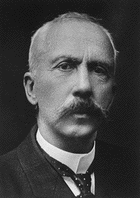August 26: Charles Richet (1850)
Charles Richet (1850)
It was on this date, August 26, 1850, that French physiologist Charles Richet was born in Paris. The son of a surgeon, Richet entered medical school but anatomy and surgery bored him, so he wrote poetry and drama as a diversion. He became a hospital intern on a women's ward and there he became fascinated with parapsychology after witnessing hypnosis. He performed his own experiments and coined the term metaphysique for parapyschological research. He abandoned surgery to devote himself to physiology.
Richet received his M.D. in 1869. From 1887 to 1927 Richet was a professor at the University of Paris, Sorbonne. While there he discovered "anaphylaxis," the sometimes fatal reaction by a sensitized individual to a second injection of an antigen, since called Richet's Phenomenon. He was awarded the 1913 Nobel Prize for physiology or medicine, "in recognition of his work on anaphylaxis" – a term he coined.
Richet had interests beyond literature and medicine, particularly Spiritualism. He was President of the French Society for Psychical Research, but insisted in such works as Should Spiritualism be Seriously Studied? (Engl. trans., 1912) that so-called spirit phenomena has physical causes.
Richet died in Paris on 4 December 1935. In their notice, the (Catholic) Revue des Deux Mondes compared him with Leonardo da Vinci, calling him "the greatest physiologist that France has had since Pasteur." Yet Richet was neither a Catholic nor a Spiritualist. In fact, he was once accused of being hostile to religion and defended himself in L'age d'or et l'age de l'or (1930), saying that he has never written about it. Instead, he said, he "has the misfortune to believe more in science than theology." He was convinced that man's future is not in belief in "childish dogmas."
Originally published August 2003 by Ronald Bruce Meyer.


